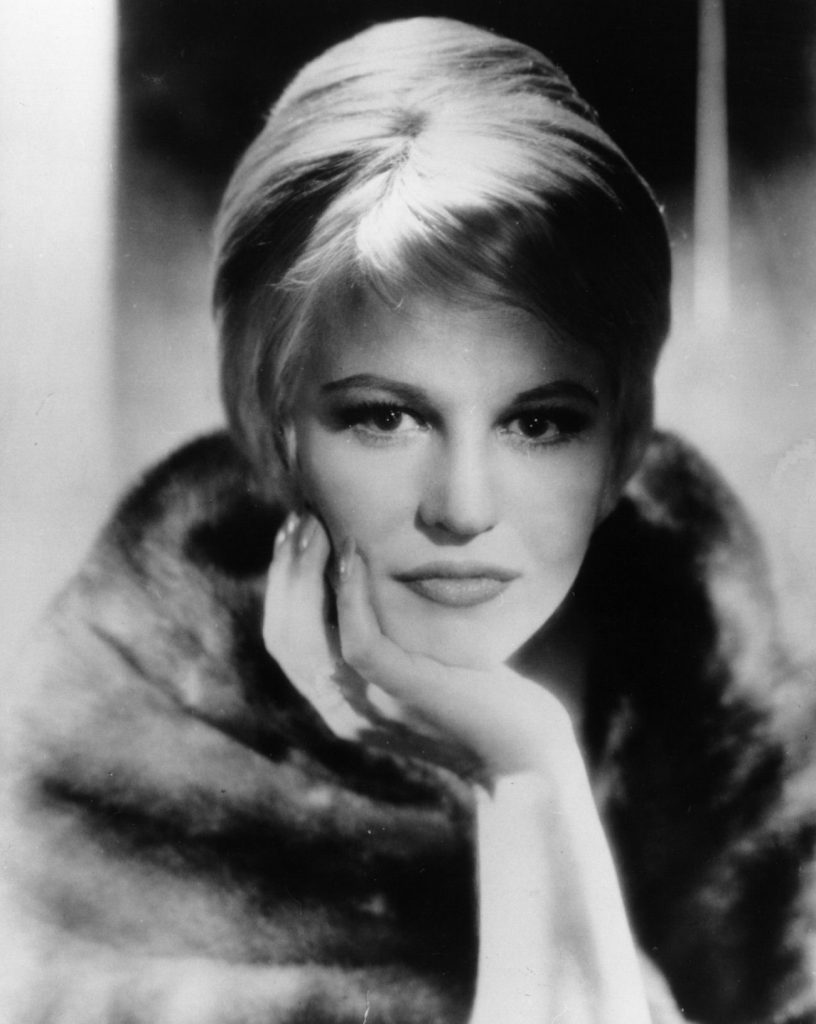
To listen to this reflection as a podcast, click here.
Throughout the month of August, we’re looking at Ecclesiastes, that strange and seemingly “modern” Old Testament book that depicts what happens when humanity searches for ultimate meaning apart from God.
Jazz singer Peggy Lee, who scored her biggest hits in the 50s and 60s, is renowned for what can only be described as the national anthem of disappointment.
Is That All There Is? hovered near the top of the charts in 1969, and went on to win multiple Grammys.
The song was written from the perspective of a woman who has “been there and done that,” and has been disappointed by everything.
She went to the circus as a little girl and hoped to be wowed. She wasn’t. She fell in love with “the most wonderful boy in the world,” only to be dumped. She thought she might die from the pain. “But I didn’t,” she sings, “and when I didn’t, I said to myself, ‘Is that all there is to love?’”
After each disappointment she sings this refrain:
Is that all there is? Is that all there is?
If that’s all there is, my friends, then let’s keep dancing.
Let’s break out the booze and have a ball, if that’s all there is.
What’s the antidote to feeling let down by everything? We might as well party.
Of course, there’s another alternative. If life is so disappointing, why not simply check out early? That’s where the song goes next:
I know what you must be saying to yourselves. “If that’s the way she feels about it, why doesn’t she just end it all?”
Oh no, not me. I’m in no hurry for that final disappointment.
‘Cause I know just as well as I’m standing here talking to you, that when that final moment comes to take my last breath
I’ll be saying to myself – is that all there is?
Death is the ultimate drag – the disappointing finale to this thing called life.
If you’re searching for the biblical manifestation of the Peggy Lee Syndrome – bleak, fatalistic jazz tones in a smoke-filled room – Ecclesiastes is your book. About two-thirds of the way through his meditation on the meaninglessness of life, the author finally hits bottom at the beginning of chapter nine. After sighing, “No man knows whether love or hate awaits him” at the moment of death, he writes:
“All share a common destiny—the righteous and the wicked, the good and the bad, the clean and the unclean, those who offer sacrifices and those who do not… This is the evil in everything that happens under the sun: The same destiny overtakes all. The hearts of people, moreover, are full of evil and there is madness in their hearts while they live, and afterward they join the dead. Anyone who is among the living has hope—even a live dog is better off than a dead lion!” (9:2-4)
The author was apparently not a charter member of the Jerusalem Optimists Club.
Does he have any recommendations as to how we might cope with these dismal realities?
Interestingly, this is where he seems to steal a page from Peggy Lee: “Go, eat your food with gladness, and drink your wine with a joyful heart, for God has already approved what you do. Always be clothed in white, and always anoint your head with oil” (9:7-8). Eat, drink, and be merry, for tomorrow we die.
Young brides and grooms sometimes ask if there is a particularly uplifting Bible verse that can be featured at their wedding. Ecclesiastes 9:9 is probably not what they had in mind: “Enjoy life with your wife, whom you love, all the days of this meaningless life that God has given you under the sun—all your meaningless days. For this is your lot in life and in your toilsome labor under the sun.” That pretty much guarantees that no bridesmaid will be making a special effort to catch the bouquet.
As we’ve noted before, Ecclesiastes came on the scene centuries before the birth of Jesus. As such, it’s hardly the Bible’s final word on happiness.
So we need to ask the question: Beyond numbing ourselves with parties and diversions, is there any reliable guidance for experiencing lasting joy “under the sun”?
The early Christian philosopher Augustine, who lived around A.D. 400, famously suggested that happiness comes down to what we choose to love the most. Or, to put it another way, how we order our loves.
Is it OK to love your work? Of course. But if you love your work more than your family, your relationships at home will suffer. Is it OK to love your spouse and children? Of course. But if you “love” them so much that you depend exclusively on them to generate joy, satisfaction, and purpose in your life, you will ultimately hurt them – and hurt yourself, too.
According to Augustine, there are countless things worthy of our love and attention in this world.
But if we make any of those things ultimate – if we decide there simply has to be a circus, a lover, a fantasy vacation, or a feeling that will never let us down – then happiness will elude us. We will always end up singing dreary refrains with Peggy Lee.
So where can authentic joy be found?
Augustine declared, concerning God, “You have made us for yourself, and our hearts are restless until they rest in you.”
If we love God above all, every other love will fall into place.
And, by God’s grace, we won’t find ourselves wondering if that’s all there is.
